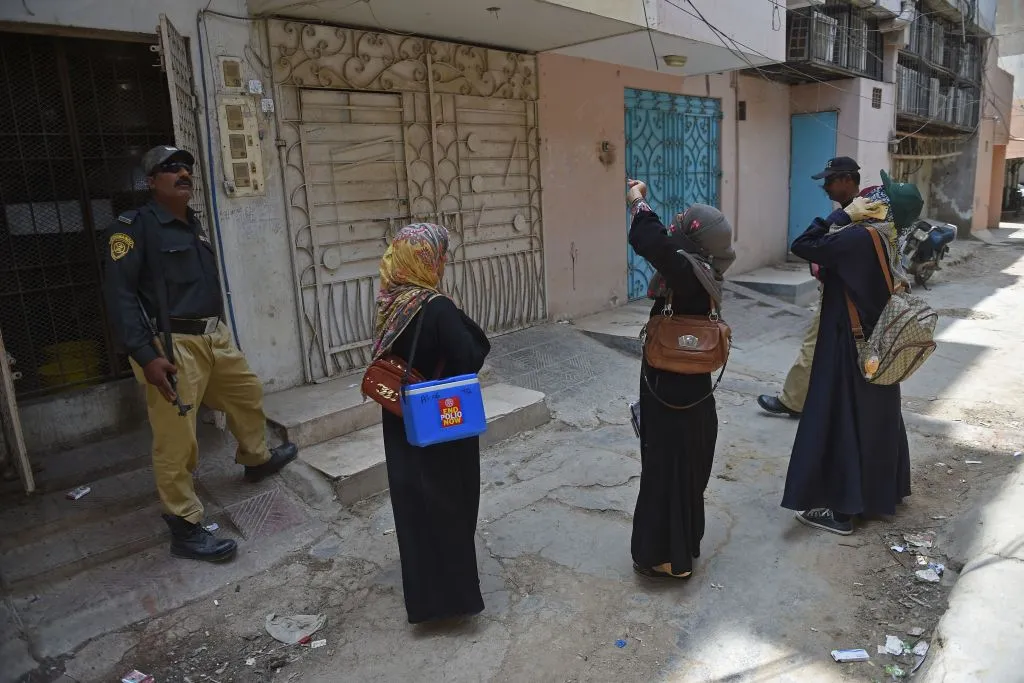The past weeks have seen continued transmission of SARS-CoV-2, new cases of acute hepatitis in children, monkeypox and now poliovirus has been found in the UK. Several decades ago, poliovirus caused serious epidemics in many countries throughout the world.
These poliovirus infections would typically cause asymptomatic or very mild gastrointestinal infections, though one case in every 100-200 results in damage to motor neurons that can cause life-threatening paralysis (poliomyelitis).
Today, because of worldwide vaccination campaigns, there are less than 500 cases of poliomyelitis every year, and efforts are underway to eradicate and stop all remaining poliovirus infections. In the UK, poliovirus was declared eliminated in 2003 due to regular polio vaccination in childhood.
The vaccination situation
There are two main types of polio vaccines in use: an inactivated vaccine, which is given as a series of four jabs, and an oral live-attenuated vaccine, which is a weakened version of the normal poliovirus that does not cause disease.
In the UK, only the inactivated vaccine is currently used, though the live vaccine is used in many places throughout the world due to its low cost, ease of administration and ability to stop poliovirus epidemics. Both vaccines are highly effective, however, people that received the live vaccine can shed the vaccine in their feces for several weeks after vaccination.
Normally this poses no risk, but the shed vaccine virus can still be detected in wastewater. Every year in the UK, there are one to three instances of this live-attenuated poliovirus vaccine being detected during wastewater sampling. The presence of this vaccine virus typically comes from travelers who were recently vaccinated with the live-attenuated vaccine outside of the UK and poses no risks to public health.
However, if this live-attenuated vaccine virus is shed in an area with low rates of polio vaccination, then it is possible for unvaccinated individuals to get infected with the vaccine. This has been occurring during the campaigns led by the Polio Global Eradication Initiative in areas such as Pakistan and Yemen.

If continued transmission of the vaccine occurs, the virus can mutate and begin to cause disease again, including causing poliomyelitis in a small percentage of cases. It is important to note that this is not something that occurs with most vaccines and the current COVID-19 vaccines cannot spread from person-to-person.
The mutated polio vaccine virus, called vaccine-derived poliovirus, was recently found in the London area wastewater, and is similar to virus identified in wastewater samples collected back in February and May 2022.
The presence of the virus in the wastewater over a several month period suggests that there may be limited transmission of vaccine-derived poliovirus occurring in the London area. However, at present, the virus has only been detected in wastewater and no cases of vaccine-derived poliovirus infection have been identified in the community.
Future cases
It is possible that these cases will be seen over the coming days or weeks if the virus continues to spread and the UK Heath Security Agency and the NHS are currently searching for evidence community transmission of the virus. If community transmission is found in London, or elsewhere, it will be important to identify the individuals infected and stop further transmission though vaccination.
Overall, the risk of this vaccine-derived poliovirus spreading and causing disease is very low, as 86 per cent of the UK population is fully vaccinated against poliovirus and so should be protected. However, there are risks of the virus spreading in areas where there are lower rates of polio vaccination, with the potential to cause damage to long-term health in some individuals.
In addition, there are some concerns that immune dysfunctions that occur following COVID-19 infection may predispose people to other infectious diseases. It is not known if this immune dysfunction would also impact the spread of the vaccine-derived poliovirus, but it is possible. As such, it is important to know that there are simple measures that anyone can do to protect themselves.
First, if you or your child have not been fully vaccinated against poliovirus, your GP can offer you the vaccine that should protect against both poliovirus and the vaccine-derived poliovirus.
Second, to prevent transmission of poliovirus, which primarily spreads through the fecal-oral route, it is important to wash your hands with soap after using the toilet and before eating.
Third, continue to prevent COVID-19 infections, which are still widely found, by getting vaccinated, using face masks, practising social distancing and testing/isolating when needed. Together these simple measures will protect against both SARS-CoV-2 and the vaccine-derived poliovirus. The identification of this vaccine-derived poliovirus in London wastewater is one more reminder that public health is not one and done, but rather requires continual global effort to ensure health and safety.
Read more about viruses:
